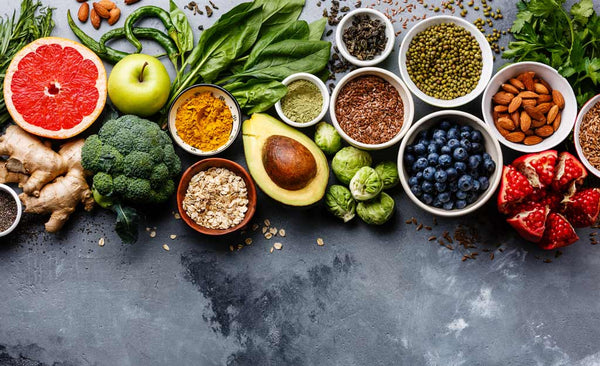How to Improve Digestion
The stomach and digestive organs are the hub of the body. It is where the body absorbs life-giving nutrients, transfers wastes into the bowels from the bloodstream, and rids the body of toxins through bowel motions.
Naturopaths believe that if you treat digestive issues, many other secondary complaints will disappear as healing takes place from within. This means that if you address the root of the problem such as dirty blood, poor elimination, inadequate assimilation of nutrients or insufficient digestive enzyme production, then you can work your way towards healing.
Improved energy comes from better digestion and improved overall health comes from optimising the health of the digestive tract.
It is easy to see why so many people suffer from digestive complaints when the health of the digestive system is abused and overlooked. These include nausea, indigestion, reflux, constipation, and diarrhea, as well as allergies, high cholesterol and even skin problems.
Problems with the digestive system
Occasional digestive problems are a common complaint. There are several possible causes ranging from an unhealthy lifestyle and poor nutrition to poor gut bacteria, food sensitivities and infections. Symptoms often go away on their own, but some simple home remedies can ease discomfort and improve overall digestive function.
Common digestive problems include:
- Stomach discomfort
- Nausea
- Gas and bloating
- Constipation
- Diarrhea
More chronic digestive problems include:
- Irritable bowel syndrome (IBS)
- Inflammatory bowel disease
- Heartburn or reflux
- Gastritis
- Ulcers
How to improve digestive health
A healthy digestive system is essential as it is where food is turned into nourishment. Not sure where to start so you can achieve better digestive health? Here are six simple but very effective tips:
- Don't overeat.
- Divide your eating regimen into well-spaced, nutritionally balanced meals with plenty of fibre, quality oils and fresh fruit and vegetables.
- Take time to eat your food slowly and chew thoroughly. Bolting down your food means that the stomach does not have time to secrete the digestive juices needed for its breakdown. Additionally, chewing well allows enzymes in the saliva to commence digestion before the food reaches the stomach.
- Stress decreases the amount of energy your body needs for digestion. Try not to eat when you are anxious or angry as it will be harder for your stomach to break down and digest food.
- Stimulants such as caffeine, alcohol, sugar and cigarettes can adversely affect digestive functions.
- Increase intake of fresh fruits and choose organic when possible. (Apples, berries, pineapple, honeydew, and paw paw largely help to increase digestive enzyme production.)
Foods that help with digestive health
- Yoghurt containing live probiotics such as acidophilus and bifidus is a valuable addition to the diet.
- Increase consumption of fresh, organic vegetables ( e.g. green leafy veggies, carrots, cucumbers, etc.)
- Choose lean protein such as tempeh, legumes, unsalted raw nuts and seeds. Nut butters and fish are also great sources of lean protein.
- Hydration helps achieve optimal digestive health. Drink at least 2 litres of filtered water daily. Fresh vegetable juices also help keep you hydrated.
- Consume more whole grains such as brown rice, rye, oats, millet, quinoa, amaranth and yeast- or wheat-free bread.
- Enjoy herbal teas such as peppermint, chamomile, ginger, lemon, fennel and dandelion to improve digestion.
- Choose healthy oils such as cold-pressed olive oil, olives, avocado, unsalted raw nuts and seeds.
- Increasing intake of bitter foods can help greatly as bitter foods produce saliva and digestive enzymes which enhance the digestive processes.
- Begin each day with some lemon juice in a glass of warm water and try apple cider vinegar, slippery elm or digestive enzymes before each meal.
Foods to limit or avoid for better digestive health
Too many of the following in the diet will greatly reduce digestive capacity and put a strain on the digestive organs such as the liver, gall bladder and bowels:
- Rich and fatty foods
- Processed, refined, tinned, and preserved foods
- Sugary and deep-fried foods
- Alcohol, tea, coffee, soft drinks and cordial
- Drinking large amounts of water before or after eating dilutes the digestive juices
- Saturated fats and trans-fatty acids (margarine, canola oil, deep-fried foods)
- Refined carbohydrates such as white bread, pasta, cakes and biscuits
- Yeasted bread
Also, avoid any foods you may be allergic to such as citrus fruits, corn, wheat and milk products.
Natural remedies for digestion
- Bitter herbs can help. Among those you can try are Dandelion, Bitter melon, Citrus peel, Fennel, Ginger, Peppermint, Cardamon, Radish seed, Gentian, Cinnamon, Agrimony and Meadowsweet
- Slippery elm is a gentle demulcent that soothes the digestion tract, promotes healthy assimilation of nutrients and improves bowel health.
- Digestive enzyme supplements may help to reduce symptoms of bloating, constipation and inefficient digestion. Happy liver contains digestive enzymes and natural medicines to improve liver function which is critical for digestive health.

- Probiotics or fermented foods are important not just for gut and bowel health; they also help improve the way your body digests and absorbs food and nutrients.






















